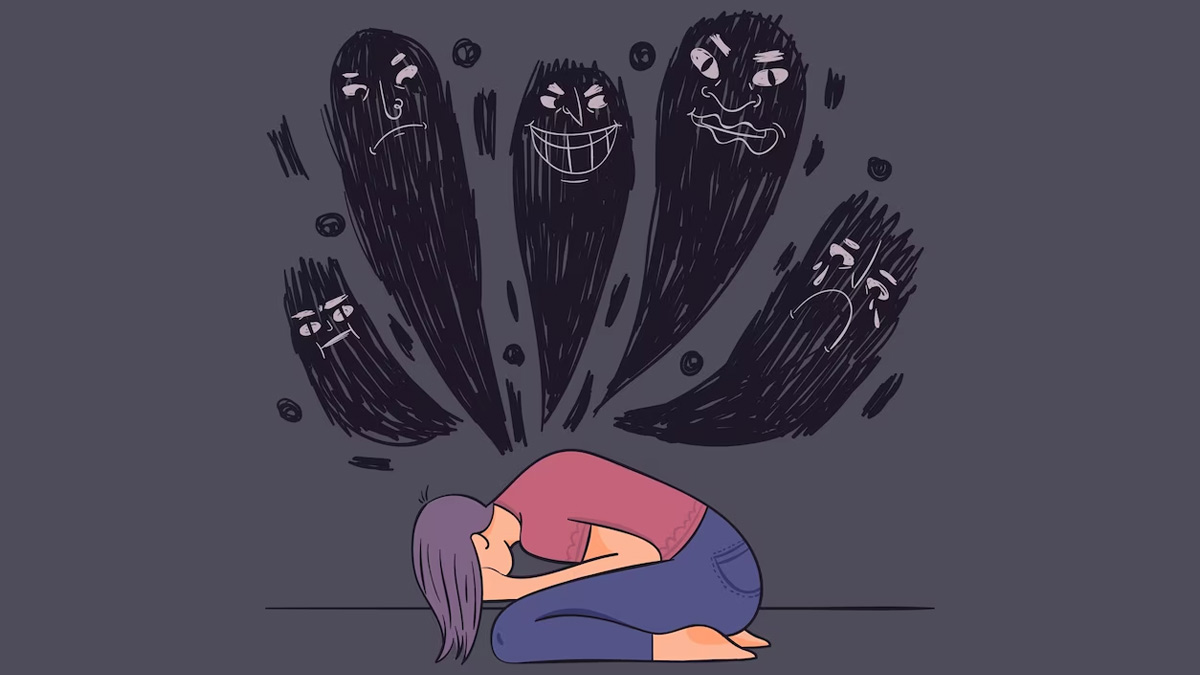
Have you ever wondered if people have an abnormal interpretation of reality? How do they deal with it? It’s the harmful mental illness called schizophrenia that can cause hallucinations, delusions, and profoundly disturbed thought and behaviour that interferes with daily functioning and can be disabling. Schizophrenia affects roughly 24 million people globally, or one in every 300 people.
Table of Content:-
According to the World Health Organisation, adults had a rate of one in every 222 persons (0.45%). It is not as widespread as many other mental illnesses. Onset occurs most frequently in late adolescence and the twenties, and it occurs earlier in males than in women.
The Early Signs
“Schizophrenia runs in families, however, no single gene has been discovered as being responsible for this illness, rather, it is hypothesised that a mix of genes enhances predisposition to the illness. Some studies have also linked the illness to the balance and function of specific brain neurotransmitters such as dopamine, serotonin, norepinephrine, and others,” said Pragati Goyal, Lead Clinical Psychologist at Lissun, a mental and emotional health startup .

Early signs of schizophrenia can be fine, making it essential for both individuals and their relatives to be aware of them. Here are some initial indicators to watch for:
- A person may start isolating themselves from friends and family. They may lose interest in social activities they once enjoyed
- People with schizophrenia may develop irrational or unusual beliefs, often referred to as delusions. These beliefs can make it challenging for them to relate to others.
- Auditory hallucinations, such as hearing voices, are common in schizophrenia. These voices may be important, commanding, or conversational.
- You might notice a loved one having difficulty organising their thoughts, which can lead to disjointed speech and difficulty in maintaining a conversation.
- Schizophrenia can cause pronounced mood swings. Someone might go from feeling extremely agitated to becoming emotionally flat within a short period.
Also read: Mental Health Matters: Anxiety In Women; Triggers, Challenges, And Management
Seeking Treatment
Early intervention is important when dealing with schizophrenia. Here are steps to consider:
- If you or someone you know exhibits these signs, reach out to a mental health specialist. They can conduct a thorough evaluation to determine the best course of action.
- Alongside medication, therapy plays a significant role in managing schizophrenia. Cognitive-behavioural therapy (CBT), family therapy, and support groups can provide coping strategies and emotional support.
- Encourage a healthy lifestyle with a balanced diet, regular exercise, and adequate sleep. Reducing stress can also help manage symptoms.
- It's important to emphasise that recovery from schizophrenia is possible. Many people with the condition lead fulfilling lives with the right treatment and support.

When schizophrenia symptoms arise, it becomes more difficult for people to live with it for the rest of their lives. Try to assist them by developing a strategy for them to follow in order to regularise their lives and improve their disorientation in life. Here's how you can keep your loved one's symptoms from worsening.-
- Make a list of major episodes of schizophrenia.
- Slide a number of psychiatrists into their phone for professional assistance.
- Create ways for dealing with stress.
- Contacts for emergencies should be kept on a fast dial.
- Assist them in speaking with experts and encouraging them to participate in social activities.
- Prepare a list of medications, allergies, and other pertinent health information.
Schizophrenia is a challenging but treatable condition. Knowing the early signs and seeking appropriate treatment can make a profound difference in the lives of those affected.
Remember, seeking help is a sign of strength, and with the right support, people with schizophrenia can embark on a path towards healing and recovery.
Also watch this video
How we keep this article up to date:
We work with experts and keep a close eye on the latest in health and wellness. Whenever there is a new research or helpful information, we update our articles with accurate and useful advice.
Current Version